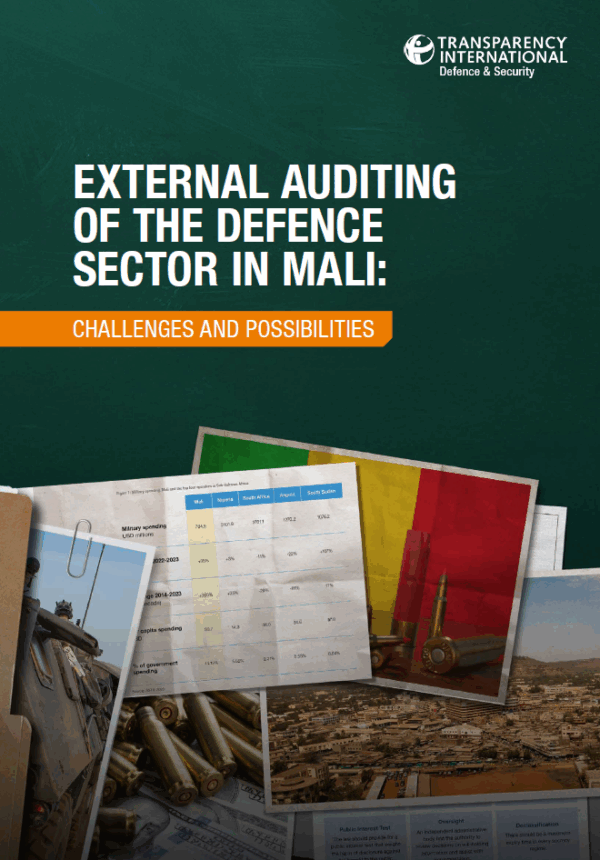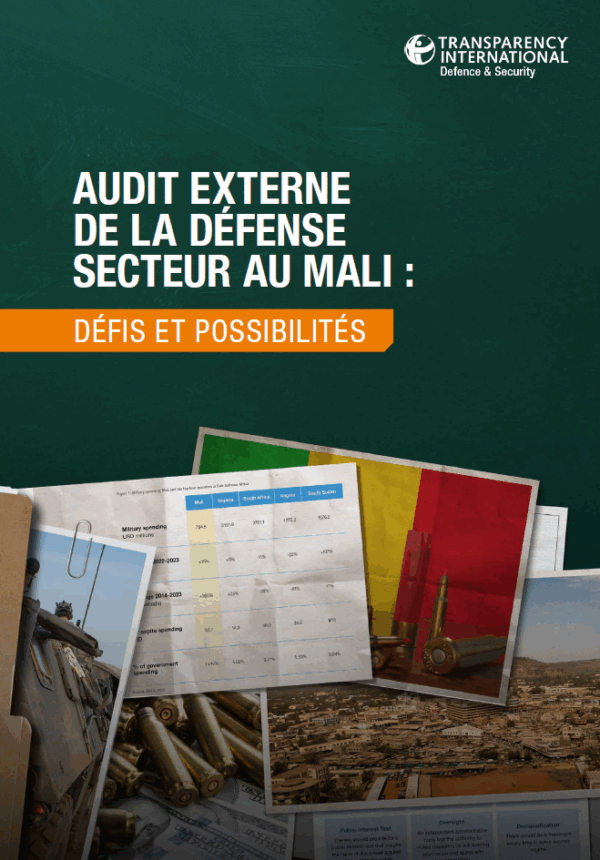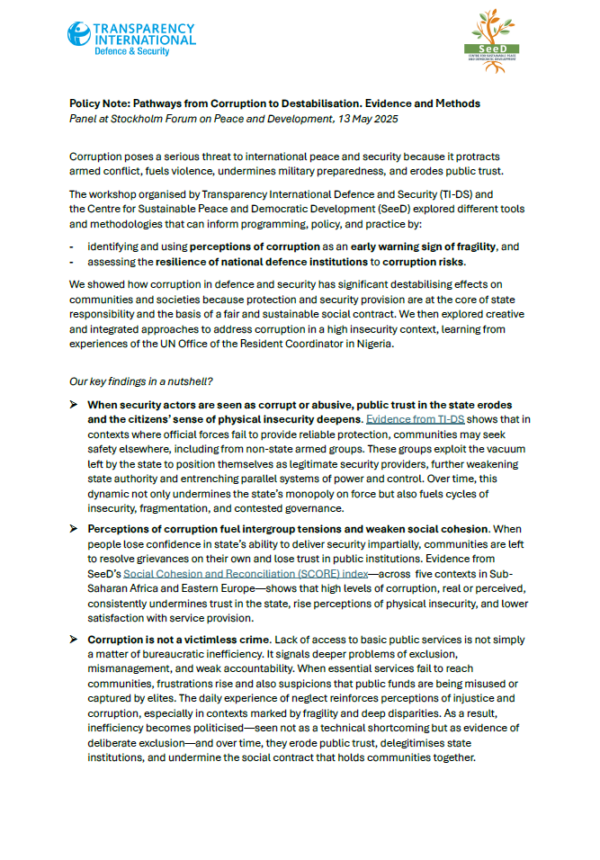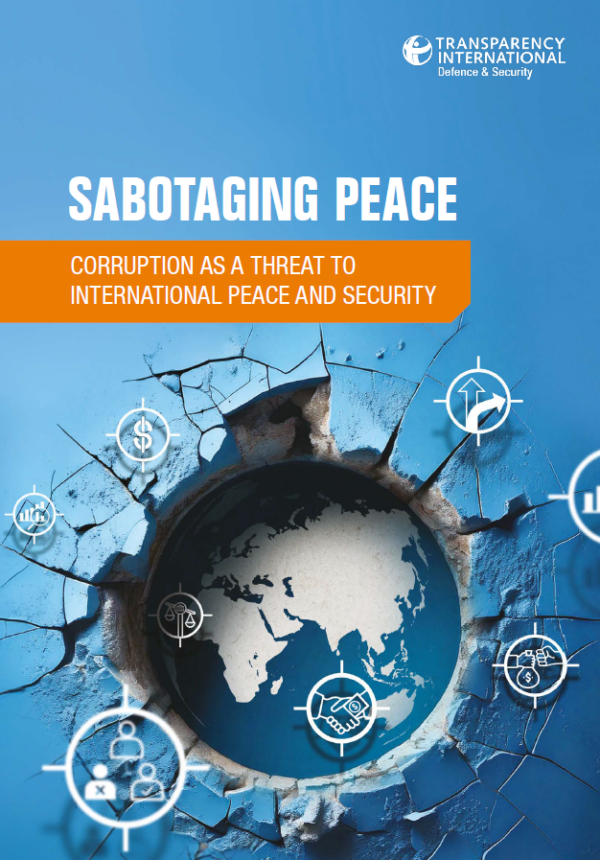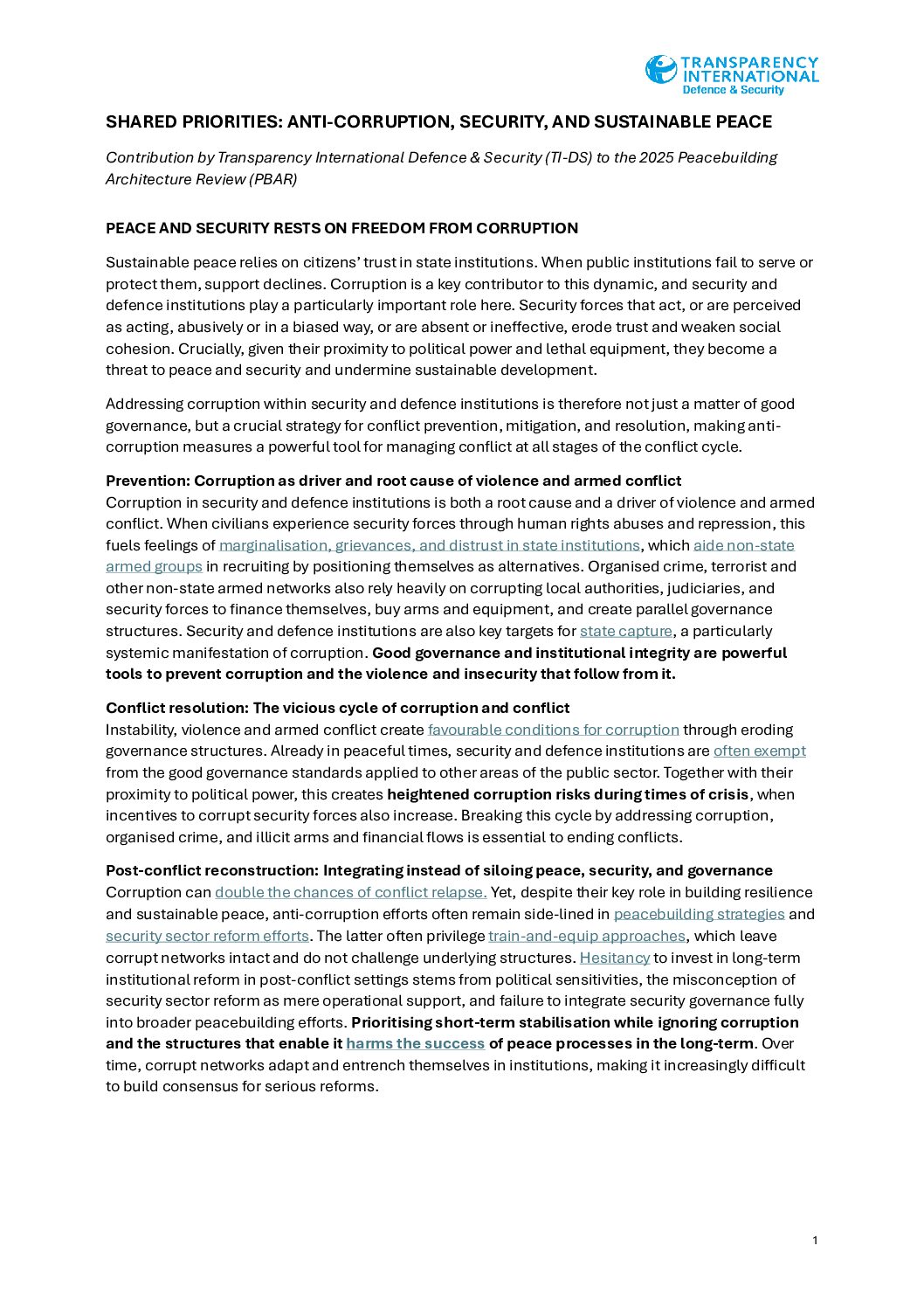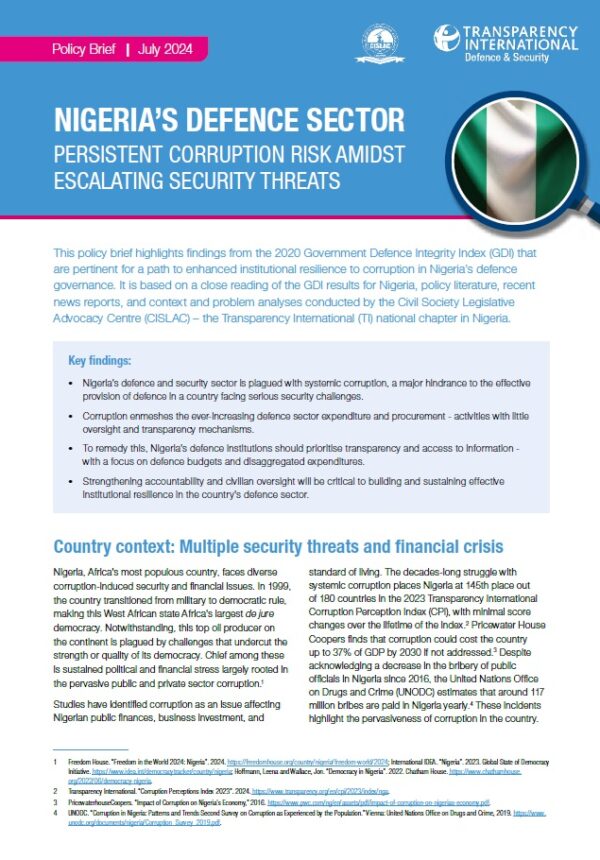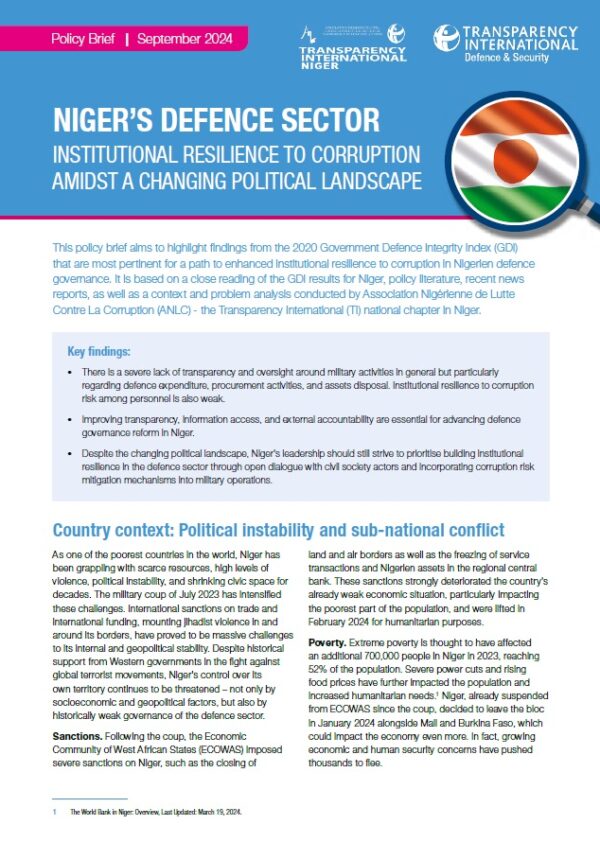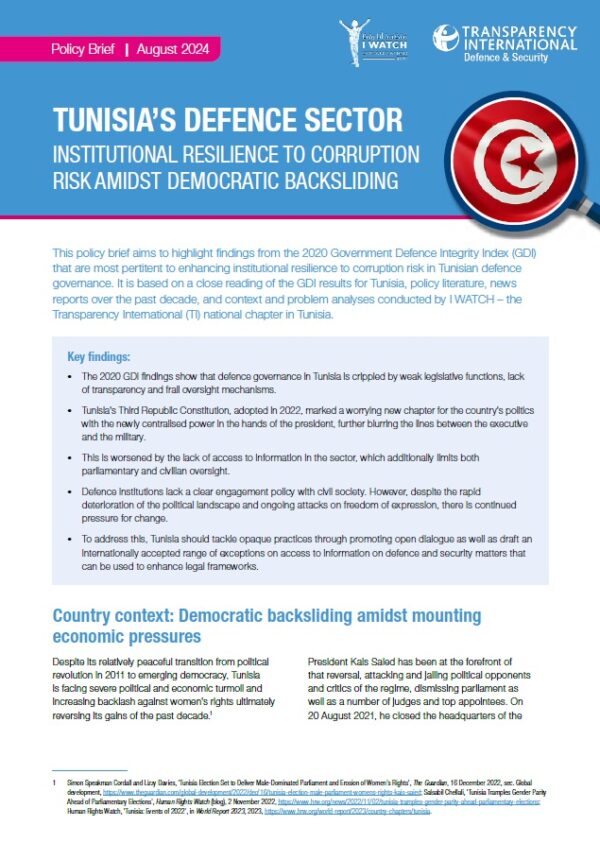Sabotaging Peace: Corruption as a Threat to International Peace and Security
“Sabotaging Peace: Corruption as a Threat to International Peace and Security” examines the relationship between corruption, conflict, and insecurity. The new report by Transparency International Defence & Security (TI-DS) explores how corruption in the defence and security sectors distorts and undermines security governance and peace processes. It also highlights the harmful influence of national political elites in obstructing governance reforms often advocated by local civil society organisations and the broader international community.
Overview
Peace, stability, and security are some of the key priorities for countries as they navigate an increasingly fragmented and violent world. However, the threat that corruption poses to achieving these objectives is frequently overlooked. At best, it is considered a problem only in the aftermath of conflicts and crises, or when evaluating their long-term impact on development and aid.
The report’s case studies, including state-building in Afghanistan, illicit networks and arms flow in Mali and Sudan, organised criminal networks in Ecuador and Venezuela, defence procurement in Ukraine, and elite state-capture in Iraq – illustrate how rampant, unchecked, and often systemic corruption becomes exceedingly difficult to address once it takes root.
The evidence outlined in this report indicates that defence and security sector-related corruption threatens international peace and security because:
- It fuels violence and armed conflict.
- It empowers and enables organised crime groups and violent non-state actors.
- It contributes to the illicit proliferation and diversion of weapons.
- It weakens and even undermines post-conflict peacebuilding processes.
With the defence and security sector receiving an increase of funding and wielding significant influence and authority – especially in peacekeeping and post-conflict peacebuilding – strong integrity, accountability, and governance standards are essential to ensuring sustainable peace and security internationally.
Key recommendations include:
Making anti-corruption a priority across national and international policy agendas and peace interventions can create opportunities to enhance human, national, and international security. Based on the findings of the report, we urge international institutions (UN and regional bodies) alongside national governments to explicitly embed corruption as a threat to international peace and security in concrete actions for change, including:
- Enhancing global coordination and collaboration on tackling corruption in defence and security.
- Strengthening corruption risk assessments and improving military assistance standards.
- Embedding integrity and anti-corruption measures into defence governance and security sector reform processes.
- Strengthening civil society and whistleblower protections in defence and security.
Download Publication as PDF
